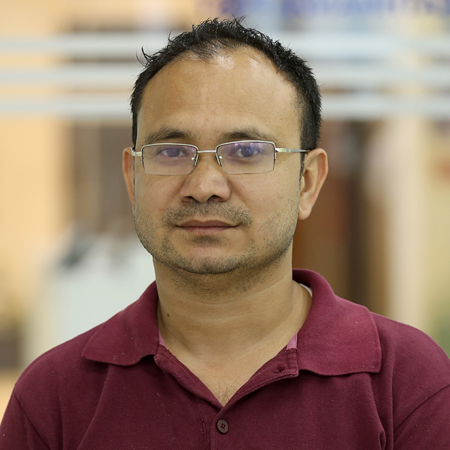National
Domestic and international NGOs start diverting funds towards anti-Covid 19 programmes
Social Welfare Council has allowed the non-governmental sector to procure medical equipment and run relief programmes.%20(9).jpg&w=900&height=601)
Prithivi Man Shrestha
Domestic and international non-governmental organisations have started to divert their resources towards Covid-19 prevention and preparedness programmes.
On April 2, the Social Welfare Council had allowed them to divert 20 percent of their programme budget to carry out activities for the prevention and control of the novel coronavirus.
In response to the interest shown by the non-governmental sector to contribute to the fight against Covid 19, the council had allowed domestica and foreign NGOs to transfer funds in the areas such as procurement of medical equipment and relief programmes.
“Around half a dozen domestic and as many international NGOs have already got approval to divert a certain portion of their programme budget,” Shiva Kumar Basnet, spokesperson for the council, told the Post. “Several other organisations have also sought permission to divert their budget to combat Covid-19.”
World Vision International, Shanti Volunteer Association, Nepal, Shanti Leprahilfe, FAIRMED and Shapla Neer are among the international NGOs to secure the council’s approval.
“They have got the approval to import health equipment and to carry out relief works,” Durga Prasad Bhattarai, information officer at the council, told the Post.
Meanwhile, PLAN International Nepal has submitted a proposal committing nearly Rs100 million to anti-Covid 19 programmes.
“The proposal is in the process of approval,” Bhattarai said.
In the policy framework for the foreign NGOs to contribute to Nepal’s fight against Covid 19 introduced in early April, organisations were also encouraged to find new sources of funding.
The government has also facilitated the domestic and foreign NGOs to bring medical equipment and goods, such as testing kits, N-95 masks, personal protective equipment, by exempting taxes.
Organisations that import medical equipment are only charged one percent custom duty.
According to Yagya Dhungel, joint secretary at the Finance Ministry, if any NGO procures medical goods meant for Covid 19 and hands them over to the government, such domestic or foreign NGO gets tax exemptions.
“Based on the recommendation of the Department of Health Services, they can import the medical equipment and hand them over to the department to receive the tax exemption facility,” Dhungel said.
The government on March 29 had decided to provide this facility until April 27, according to the Finance Ministry.
Earlier, they were supposed to pay 13 percent value added tax and 15-20 percent customs duty depending on medical goods, the ministry said.
Before the government decided to seek the help of the NGO sector, the international NGOs had proposed to work in multiple areas, including strengthening the system of contact tracing, setting up hospitals to treat Covid-19 patients, providing medical equipment and safety gear to health workers, relief distribution to the vulnerable population, education and sanitation.
Public health experts say that contributions from the domestic and foreign NGOs could be valuable right now, because of their nationwide presence and the works they carry out at the grassroots level. There are more than 100,000 registered domestic NGOs and around 250 foreign NGOs affiliated with the council.




 18.12°C Kathmandu
18.12°C Kathmandu














